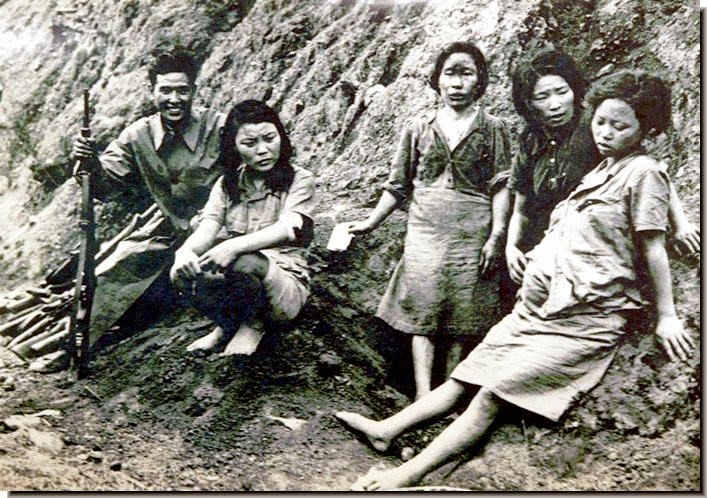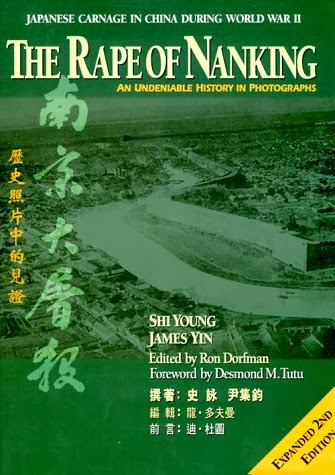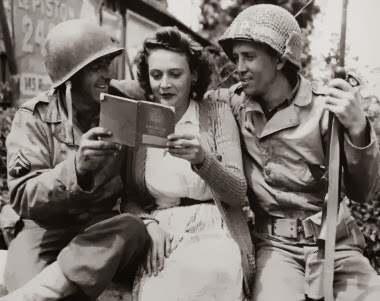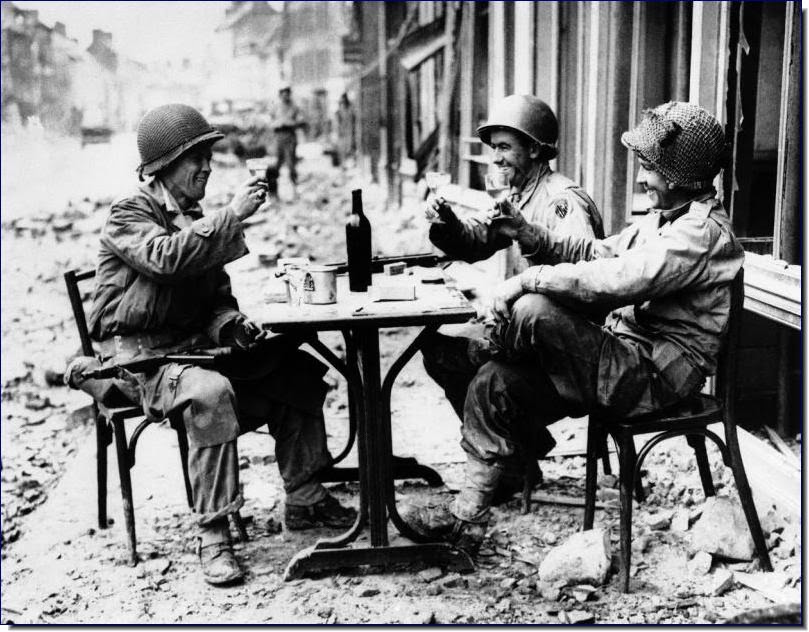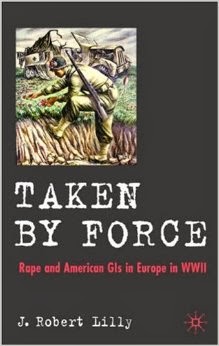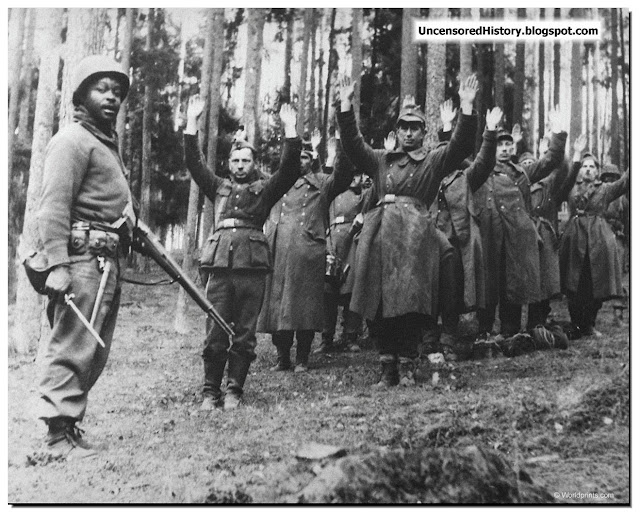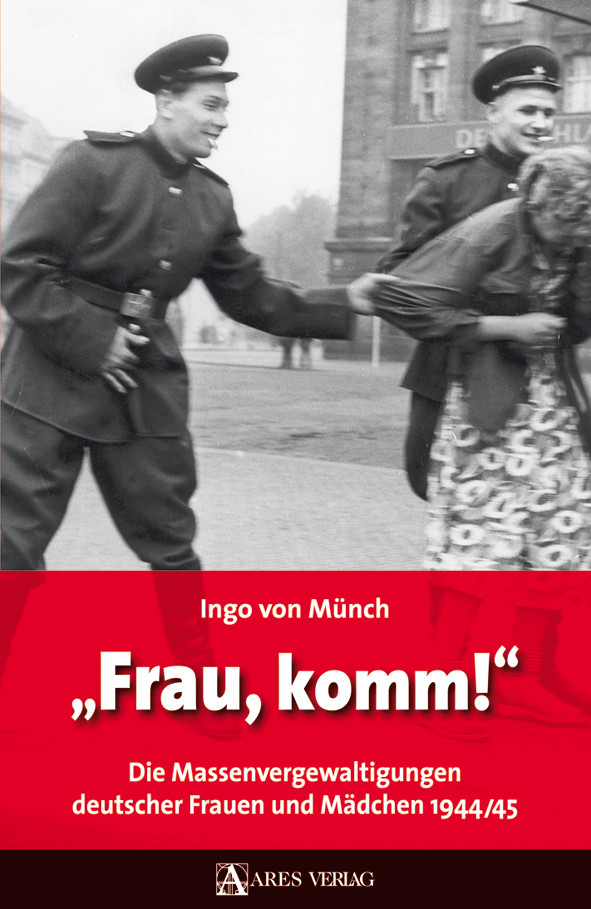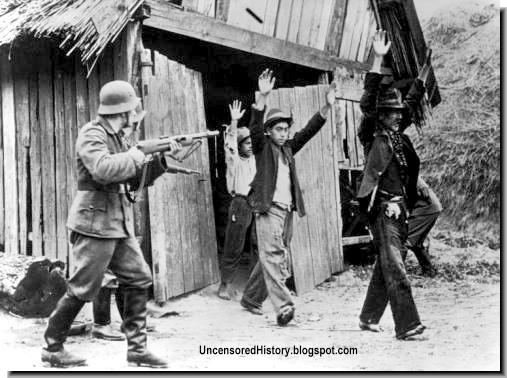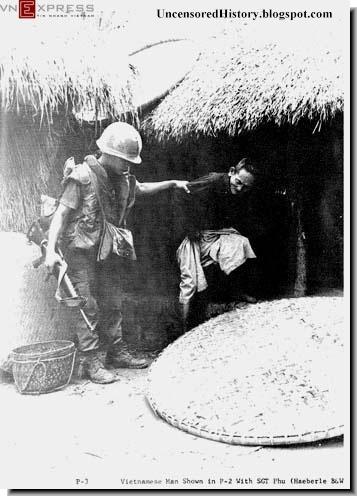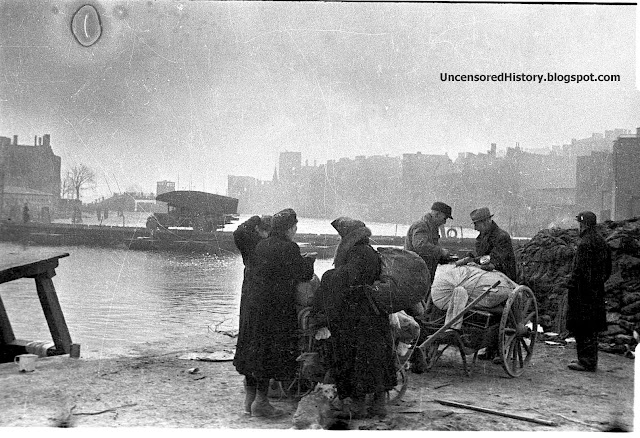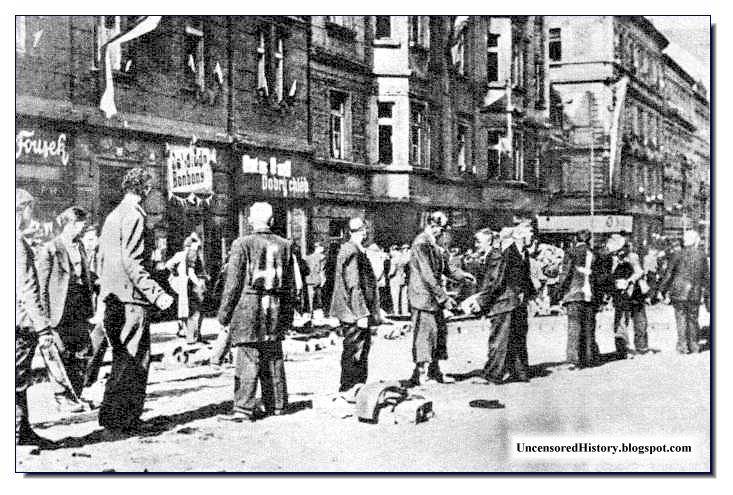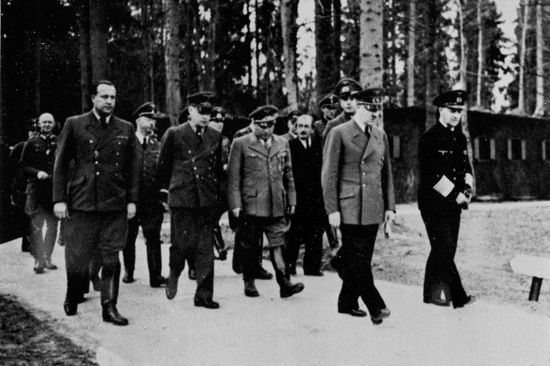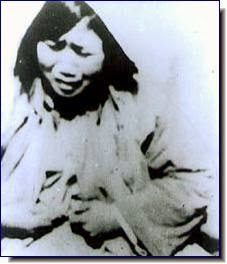 Rape is a part of war. It should not be. But reality is, nobody fight wars following the Queensberry rules. The Geneva Conventions to be more relevant. Why should women be violated when the men do the fighting? But real life is not fair. So as we said rape inevitably occurs during war.
Rape is a part of war. It should not be. But reality is, nobody fight wars following the Queensberry rules. The Geneva Conventions to be more relevant. Why should women be violated when the men do the fighting? But real life is not fair. So as we said rape inevitably occurs during war.Coming to the Second World War we have talked at length of the rape of German, French and Italian women. Now we come to rape committed by Japanese soldiers. The victims were mostly Chinese and Korean women. This aspect has received slightly less coverage than say, the rape of German women. May be continents matter. Or may be color of the skin. Only lately has the rape by Japanese soldiers received increasing prominence in the western media because both the perpetrators and the victims have become front rank economies (Japan has been a big power since the late sixties).
The reality of war is that is that nobody is a saint in war. After Japan was defeated in 1945 and the Americans too raped Japanese women and kept "comfort women" during the occupation. But that is dealt elsewhere.
The roots of the present confrontation between Japan and China (and Korea} lies in the bitter history of WW2. And the mass rape and abuse of Chinese and Korean women by Japanese soldiers has left a deep imprint. The wounds have never healed.
Hatred and aggression have very very long shadows.....
-----------------------------------
 Japanese troops seem to have committed sexual violence against Dutch women at various places in the Dutch East Indies immediately after the invasion. For example, when they entered Tjepoc, the main oil centre of central Java, “women were repeatedly raped, with the approval of the [ Japanese commanding officer.”
Japanese troops seem to have committed sexual violence against Dutch women at various places in the Dutch East Indies immediately after the invasion. For example, when they entered Tjepoc, the main oil centre of central Java, “women were repeatedly raped, with the approval of the [ Japanese commanding officer.”On that Thursday, 5 March 1942, we remained in a large room all together.
The Japanese then appeared mad and wild. That night the father-in-law
and mother-in-law of Salzmann. . . . were taken away from us and fearfully
maltreated. Their two daughters too, of about 15 and 16 had to go with
them and were maltreated. The father and mother returned the same night,
fearfully upset, the girls only returned on Friday morning, and had been
raped by the Japanese.
On Saturday afternoon, March 7, 1942, the Japanese soldiers (odd
soldiers) had appeared in the emergency hospital where the women and
children were seated together. The ladies were here raped by the Japanese,
in which connection it should be mentioned that this happened where the
children were not present. These ladies were myself, Mrs. Bernasco, Mrs.
Mebus, Mrs. Dietzel, Mrs. de Graaf, Mrs. van Bakerghem, Mrs. Verbeek,
Mrs. Warella.
This occurred from March 7 to 17, 1942; generally the Japs came at
night, but by way of exception, also during the day. It was a mass, continuous
merciless rape. The first afternoon that this happened, as mentioned,
three enlisted men came, and everything took place under threat. After this
happened, we managed to tell the Chinese doctor Liem. He went to the
Commandant, whereupon that afternoon, Mrs. Dietzel, myself and one or
two others had to appear before the Commandant. The Commandant said
that we would be given an opportunity to point out the Japs who had
misconducted themselves, and that they would be shot dead before our very
eyes.
However, nothing happened and after an hour we were sent back to the
emergency hospital.
That evening, at 8 o’clock, we were transferred to a classroom in a school
near by. According to what we were told, this was done for our own safety,
since the Japs would not come there.
Between 10 and 12 o’clock that night, when we were all asleep, a whole
mass of Japanese soldiers entered with the above-mentioned commandant
at the head. The Commandant sat on a table in our classroom and then
watched how each of the women was dragged away, one by one, to be
raped. He himself did not join in this.
The full story of the Rape of Nanking, which occurred in 1937, did not come out until the post-World War II Tokyo war crimes tribunal, held almost ten years later. While none of the war crimes defendants were tried for rape, prosecutors presented evidence of mass rape to help convict several defendants of crimes against humanity.
[note: This was similar to the treatment of rape during the Nuremberg war crimes trials for Nazi war criminals. ]
The Chinese Nationalist Army had used Nanking as its capital, but General Chiang Kai-shek had decided not to defend the capital and withdrew the army as Japanese forces arrived. This withdrawal left the city-full of refugees, women and children-defenseless in the face of invading forces:
There were many cases of rape. Death was a frequent penalty for the slightest resistance on the part of a civilian or the members of the woman's family who sought to protect her. Even girls of tender years and old women were raped in large numbers throughout the city, and many cases of abnormal and sadistic behavior in connection with these rape occurred. Many women were killed after the act and their bodies mutilated. Approximately 20,000 cases of rape occurred within the city during the first month of the occupation.
Reports indicate that superior officers often did not stop such behavior: a soldier caught by a Japanese officer or military police "was very politely told that he shouldn't do that again." At the Tokyo tribunal, testimony of continued rapes by Japanese soldiers on the campus of Nanking University indicated knowledge and complicity on the part of the Japanese government: the university campus was located next to the Japanese Embassy. The tribunal found General Iwane Matsui, the man in charge of the Nanking invasion, guilty of crimes against humanity and sentenced him to death by hanging.
[note: The tribunal ruled that the behavior of the Japanese army could not be considered the acts of a military group that temporarily had "gotten out of hand"; rather, rape, arson, and murder had continued to be committed on a large scale for at least six weeks after the city had been taken.]
In 1991, the world learned that Japanese soldiers during World War II forced 80,000 to 200,000 Asian women, mostly Koreans, to serve as sex slaves. Known as "comfort women", they were held in front line brothels to service the Japanese Imperial Army.
[note: Only Japanese prostitutes were sent to the brothels at first, but Japan later began using women from its Asian colonies, drawing primarily from its oldest colony, Korea. ]
The government had provided the women in order to control the spread of venereal disease among soldiers, and to discourage troops from raping local women, which "would have intensified civilian resistance to the Japanese army as it swept through Asia." The story of the "comfort women" was a secret for nearly half a century due to the shame felt by the women,
[note: According to the mores of Korean society, the women felt they had brought great and lasting dishonor to their families. ]
the weak political and social status of women in Korean society, and the women's fear of becoming objects of derision. A group of elderly South Korean women in 1991 decided to end their silence, announcing to the world the atrocities they had suffered.
The Japanese government at first denied involvement in the brothels, claiming that the brothels were run by private contractors, but it eventually released a report acknowledging its direct involvement in the brothels and apologizing for recruiting the women. The report, based on a six-month survey of wartime documents, stated that the government systematically obtained women from Japan, Korea, China, Taiwan, the Philippines, and Indonesia to serve in the brothels. The documents showed that military officials had not only set up the brothels, but also kept meticulous records about venereal disease, revenue generated and even price per woman: one yen to use a Chinese woman, one and a half to use a Korean woman and two yen to use a Japanese woman. Each soldier got thirty minutes with a woman and had to wear a condom; each woman had to service at least forty men per day, although some served up to 100 a day" The report found no evidence that the government recruited these women forcibly. The refusal of Japan to state that the women were forced or tricked into the brothels evoked a bitter reaction, especially from South Korea, where the government demanded further investigation. A 211- page interim report released by the South Korean Foreign Ministry included 155 examples of women sent to the Japanese brothels under "threatening circumstances".
The few remaining survivors also tell of forcible recruitment or trickery. The Korean Council for Women Drafted for Sex Service by Japan located sixty survivors; half said that Japanese soldiers kidnapped them, and the other half said that recruiters misled them by offering them jobs as nurses or factory workers.
[ note: One woman said she was picking vegetables when soldiers abducted her and a truckload of other village girls. Another woman said she was sent to Taiwan, but refused to work as a prostitute until she was beaten so badly that her bones were broken. When she tried to escape, she was sent to Manchuria, where she was forced to have sex with up to fifty men a day. Some women said they were tortured with bamboo slivers pushed under their nails; many spoke of ailing friends who were left to starve. After the war, the Japanese army left the women in distant outposts; many were killed. ]
One former Japanese soldier admitted that he participated in dawn raids on Korean villages, dragging young women away from their screaming children and loading them into trucks. Witnesses reported that soldiers seized one woman who resisted, tied her to five horses by the arms, legs, and neck and then whipped the horses away.
Historians believe most of the women held in Japanese brothels died during World War H or soon afterwards. When the women contracted diseases or suffered from malnutrition, the soldiers threw them into the sea or doused them with gasoline and burned them alive. Thousands were slain by soldiers who wanted to set an example to the rest of the women. A witness reported that once a soldier considered a woman "useless", the soldier sometimes would insert a gun into her vagina and blow her apart. Many other women died shortly after the war, either from untreated venereal disease, beatings, botched abortions, or the effects of deprivation." Still others committed suicide, many while being forced to serve as "comfort women".
http://coursesa.matrix.msu.edu/~fisher/bosnia/readings/Aydelott1.html
The Japanese Imperial Army enslaved between 80,000 and 200,000 women and girls from 1932 to 1945. Most came from Korea, with many also from Japan and the Dutch East Indies. Women and girls were obtained through abduction or deception and, in some cases, purchased from destitute parents. Euphemistically known as “comfort women,” they were taken to ‘comfort stations’ throughout the Pacific, including then East Timor and the Solomon Islands. Women were kept for months or years on end, and while most were under the age of 20, some were as young as 12. For many, the comfort stations were their first sexual experience, and many are infertile as a result of their enslavement. Women who made it home at the end of the war kept silent about their experience through fear and shame, and threats received from the Japanese military.
The atrocities were not just against the Chinese, but also British, Canadians, and people of other nationalities. For example, at a hospital for injured British soldiers, the Japanese soldiers slaughtered 170 recuperating soldiers and a few hospital staff. The eyes, ears, noses, tongues, or limbs were cut off on many victims. Seventy of the soldiers were killed with swords while they were lying in bed. The hospital’s seven nurses were raped, sometimes while lying on top of the bodies of murdered British soldiers. Several of the nurses were also slaughtered, and one of them almost had her head severed.
http://www.dontow.com/2007/04/massacre-and-atrocities-in-hong-kong-during-wwii/
WHY COMFORT WOMEN?
Another concern of military leaders was the incidence of VD among the armed forces. They believed that VD threatened to undermine the strength of their men (and hence their fighting ability). They also feared the spread of the disease could potentially create massive public health problems back in Japan, once the war was over. The leaders believed that a regulated system, such as the comfort stations, would enable them to take effective preventive health measures.
A further concern was security. Military leaders believed that private brothels could easily be infiltrated by spies and that prostitutes working in them could easily be recruited as spies.
One Chinese physician who practiced in Hong Kong between 1941 and 1942 claimed that possibly 10,000 girls and women were raped in the month following Japanese occupation.
From the Judgement of the International Military Tribunal On War Crimes In The Far East....
From Documents On Rape Of Nanking by Timothy Brook (Page 259)
Women were killed in indiscriminate acts of terror and execution, but the large majority died after extended and excruciating gang-rape. "Surviving Japanese veterans claim that the army had officially outlawed the rape of enemy women," writes Iris Chang. But "the military policy forbidding rape only encouraged soldiers to kill their victims afterwards." She cites one soldier's recollection that "It would be all right if we only raped them. I shouldn't say all right. But we always stabbed and killed them. Because dead bodies don't talk ... Perhaps when we were raping her, we looked at her as a woman, but when we killed her, we just thought of her as something like a pig." (Chang, The Rape of Nanking, pp. 49-50).
Kenzo Okamoto, another Japanese soldier, recalled: "From the time of the landing at Hangzhou Bay, we were hungry for women! Officers issued a rough rule: If you mess with a woman, kill her afterwards, but don't use bayonets or rifle fire. The purpose of this rule was probably to disguise who did the killing. The military code with its punishment of execution was empty words. No one was ever punished. Some officers were even worse than the soldiers." (Yin and Young,The Rape of Nanking, p. 188)
http://www.gendercide.org/case_nanking.html
After the occupation of Nanjing, the soldiers immediately formed into groups and roamed throughout the city. When they came across a woman, they would take turns raping her. A report on these atrocities can be found in the appendices of Harold John Timperley's book "A Foreigner's Eyewitness Account of the Atrocities Committed by the Japanese." Almost the entire account is devoted to crimes involving rape. A few items selected from Timperley's book will suffice to show how these scattered troops from the Japanese army went about committing the crime of rape.
At noon, December 14th, on Chien Ying Hsiang Road, Japanese soldiers entered a house and took four girls, raped them, and let them return [home] in two hours.
On the night of December 14th there were many cases of Japanese soldiers entering Chinese houses and raping women or taking them away.
On the night of December 15th, a number of Japanese soldiers entered the University of Nanking buildings at Tao Yuen and raped thirty women on the spot, some by six men.
On the evening of the 15th [of December] at San Tian Hsiang many soldiers got into the house and raped many women.
On December 16, seven girls (ages ranged from 16 to 21) were taken away from the home at the Military College. Five returned. Each girl was raped six or seven times daily -- reported December 18th.
On December 18th, evening, 450 terrified women fled for shelter to our office and spent the night in our yard. Many have been raped.
http://www.cnd.org/njmassacre/njm-tran/njm-ch10.htm
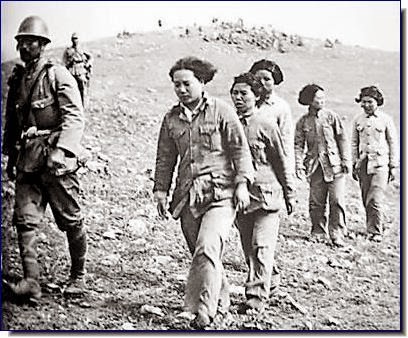 |
| Chinese victims |
woman. The passage depicts clearly how military violence involves atrocious
abuse of women’s sexuality.
The Medical Unit of the 3rd Division set up a comfort station soon after they entered Yangzhou on December 18. A Chinese local security council was ordered to supply 60 women to this station. ( These councils were organizations that occupying Japanese troops forced local civilians to establish.) Eventually 47 women were secured. The 26th Brigade of the 13th Division, stationed in Bengbu, also set up a comfort station staffed with 10 Chinese women, which opened at the end of January 1938. Therefore it seems that the Japanese forces which invaded Nanjing and neighboring areas used many Chinese women as comfort women. Some troops used devious methods to “recruit” these women.
However, the exploitation of local Chinese women in territories occupied by the invading Japanese troops did not become a general pattern. Before March 1938, some units such as the 104 Regiment stationed in Chuxian, were reluctant to use local women as comfort women. They did not set up a comfort station until mid-March when Japanese and Korean women were sent to this unit. It that sooner or later troop commanders realized that it was not good policy to force local women into prostitution, out of consideration for the public. Another reason that the Japanese troops were generally reluctant to use local Chinese was related to security.
Japan's Comfort Women: Sexual Slavery and Prostitution during World War II and the US Occupation By Toshiyuki Tanaka
RAPE BY JAPANESE SOLDIERS (AND LATER OCCUPYING AMERICAN SOLDIERS)
Japan's Comfort Women tells the harrowing story of the "comfort women" who were forced to enter prostitution to serve the Japanese Imperial army, often living in appalling conditions of sexual slavery. Using a wide range of primary sources, the author for the first time links military controlled prostitution with enforced prostitution. He uncovers new and controversial information about the role of the US' occupation forces in military controlled prostitution, as well as the subsequent "cover-up" of the existence of such a policy. This groundbreaking book asks why US occupation forces did little to help the women, and argues that military authorities organised prostitution to prevent the widespread incidence of GI rape of Japanese women, and to control the spread of sexually transmitted diseases.
-------------------------------------------
-------------------------------------
The Rape Of Nanking
----------------------------------------------------
The Rape of Nanking: An Undeniable History in Photographs
------------------------------------------
What war means: the Japanese terror in China; a documentary record By H J Timperley
Documents On The Rape Of Nanking By Tomothy Brook
----------------------------------------------------
Documents of The Nanking Safety Zone
------------------------------------------

